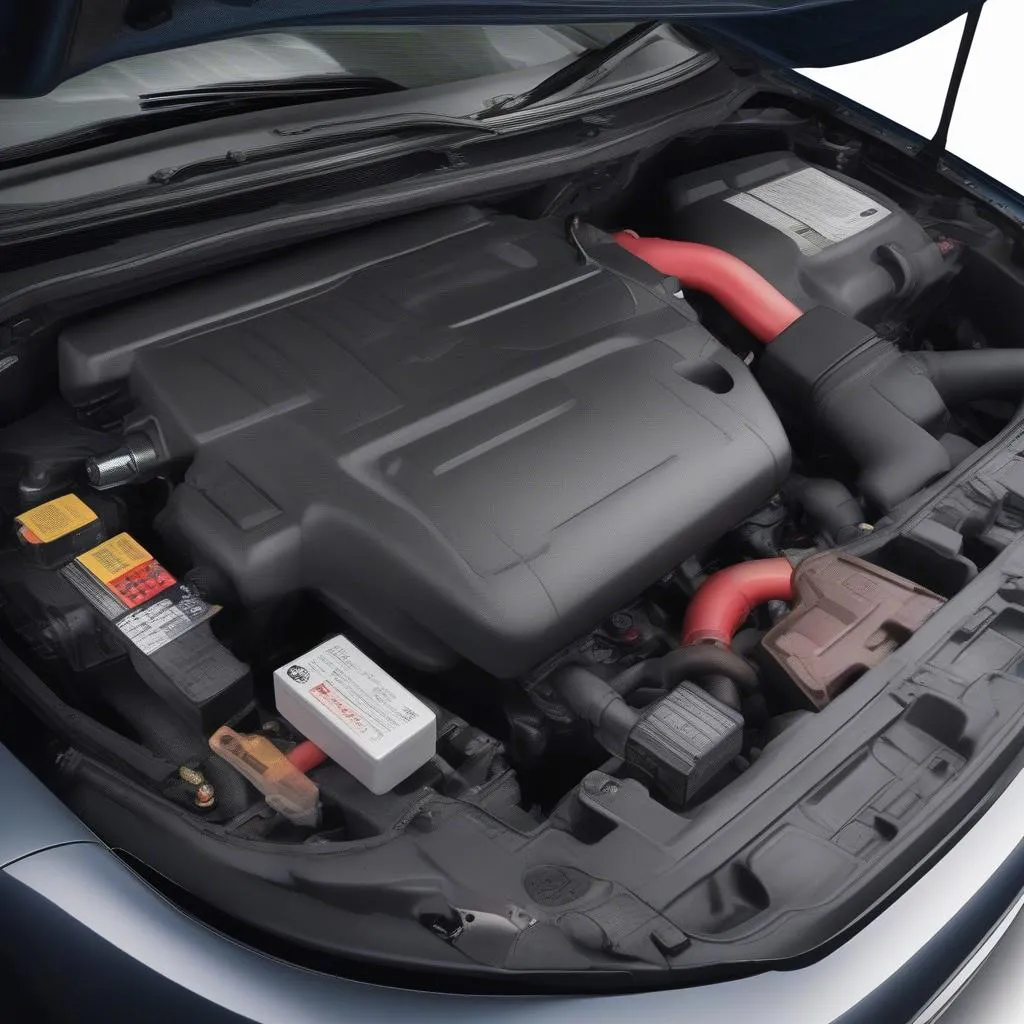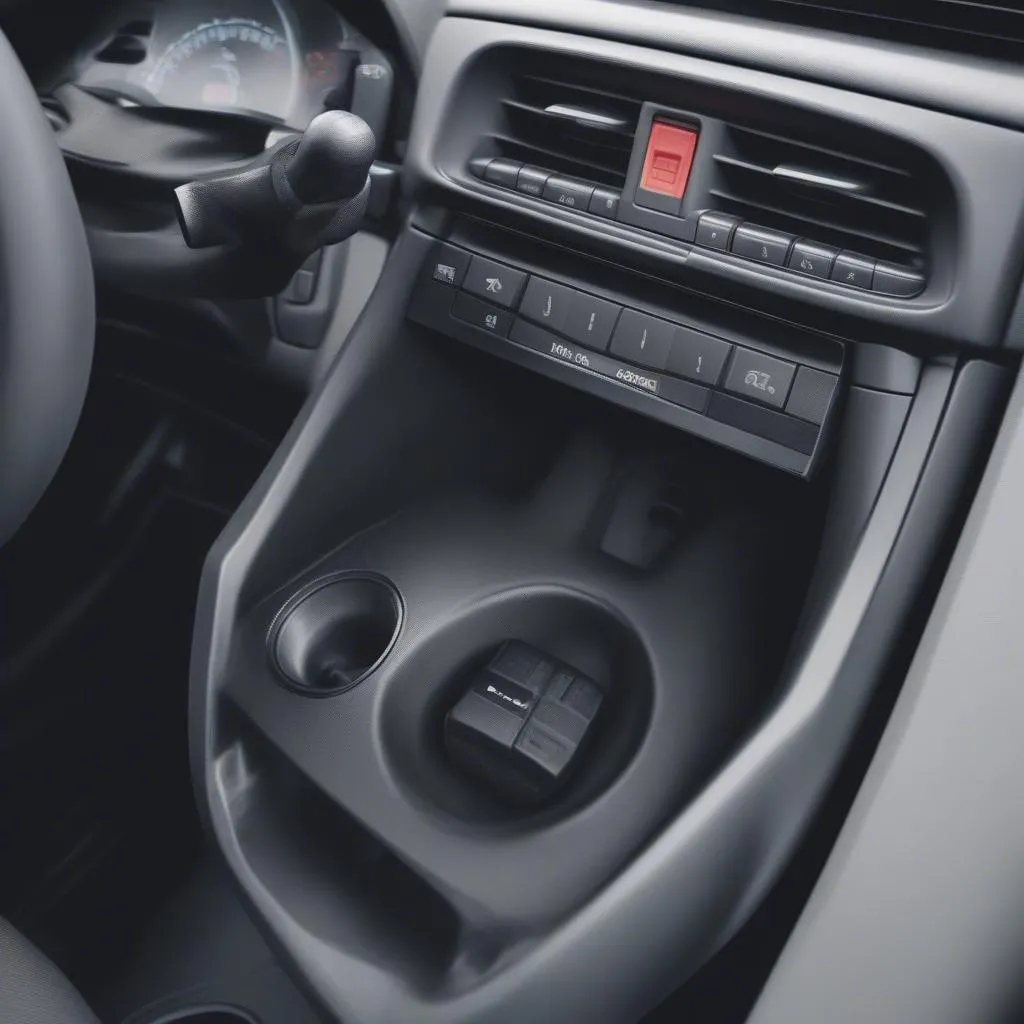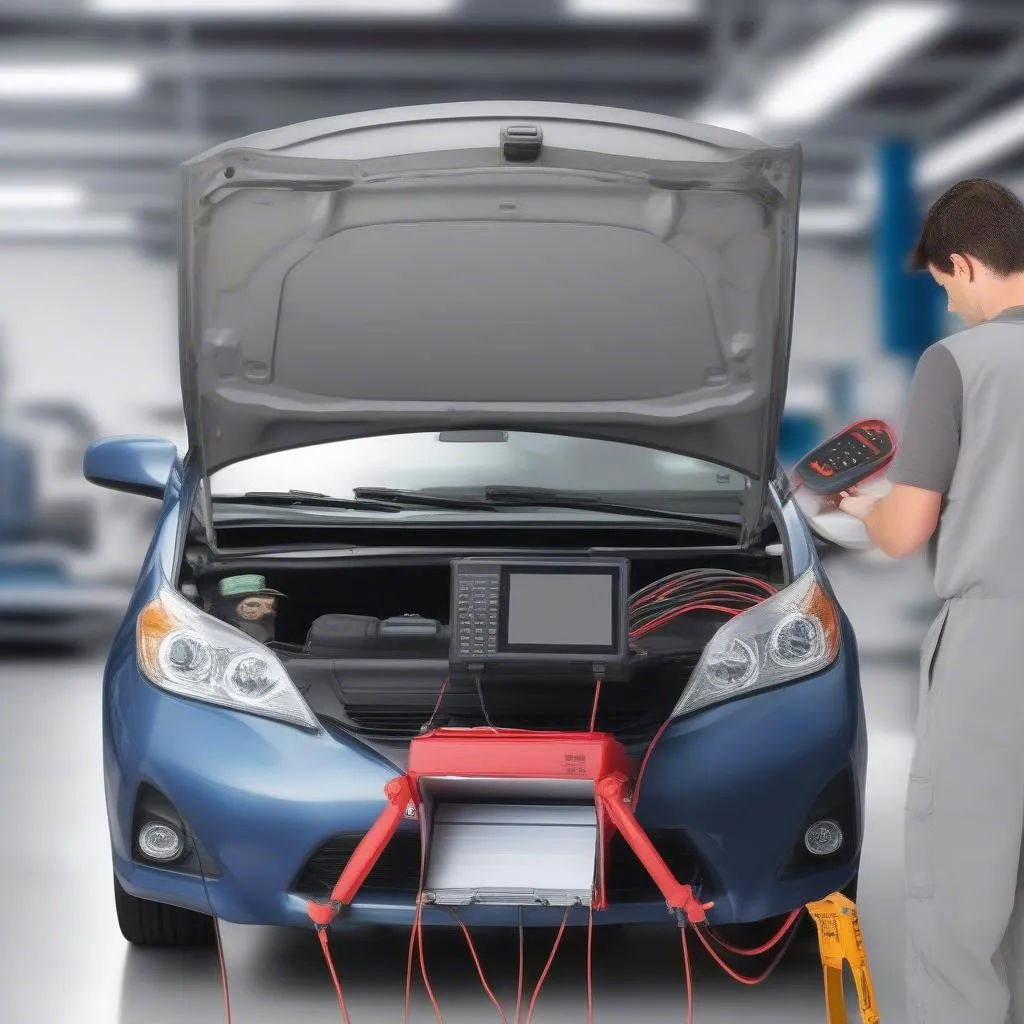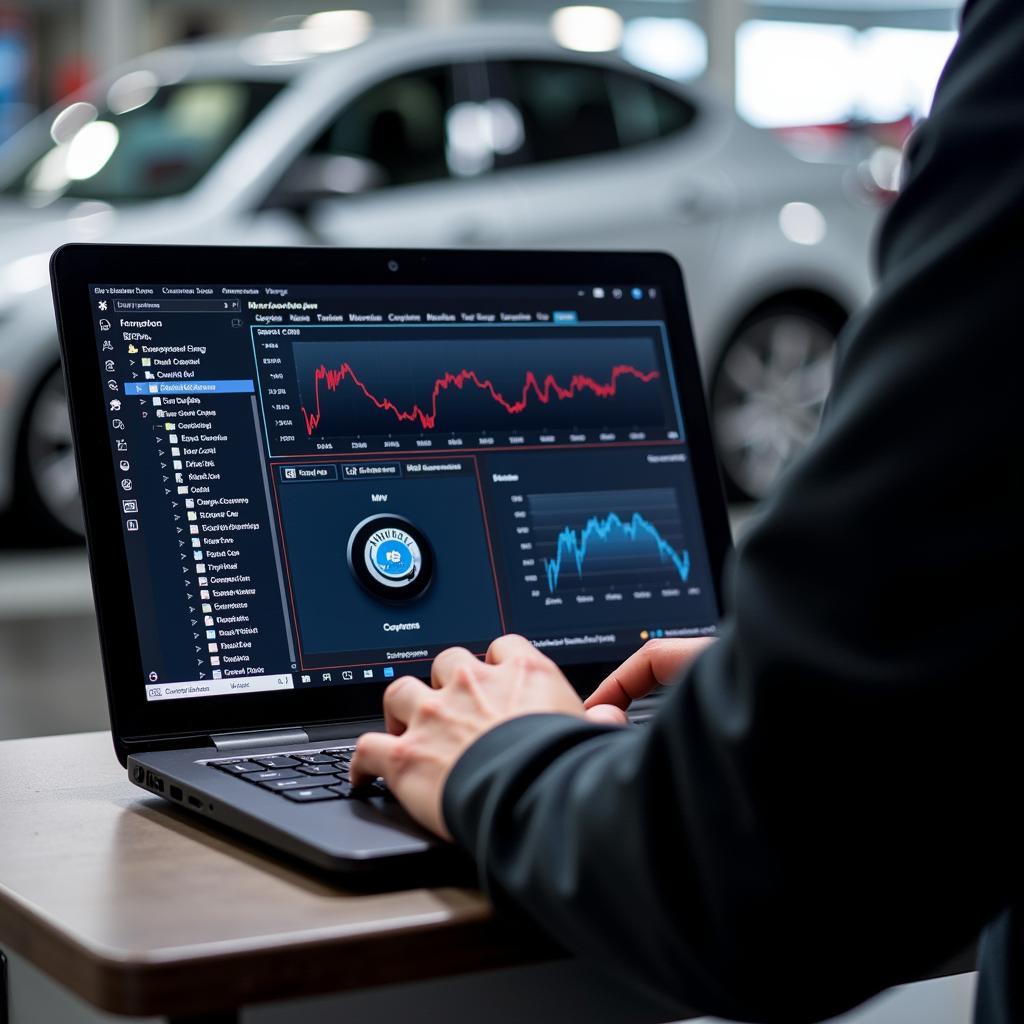The 2010 Toyota Corolla LE comes equipped with a standard factory-installed anti-theft system designed to deter theft and unauthorized entry. Understanding how this system works can be very helpful if you’re experiencing issues, or even if you’re just curious about your car’s security features.
Unraveling the 2010 Corolla LE Anti-theft System
While not as sophisticated as the systems in some higher-end vehicles today, the 2010 Corolla LE’s security system provided a reliable layer of protection for its time. Here’s a breakdown of the key components and how they work:
1. Immobilizer System: The Heart of the Defense
At the core of this system is a transponder chip embedded within your Corolla’s ignition key. This chip communicates with the car’s Engine Control Unit (ECU). When you insert your key and turn it, the ECU reads the unique code transmitted by the chip.
- Successful Recognition: If the codes match, the ECU allows the engine to start.
- Code Mismatch: If the received code is incorrect or missing (like if you were to use an unauthorized or unprogrammed key), the ECU won’t allow the engine to start, effectively immobilizing your car.
2. Alarm System: Your Vehicle’s Voice
In addition to the immobilizer, your 2010 Corolla LE likely has an alarm system. While the specifics can vary, these systems typically include:
- Door, Hood, and Trunk Sensors: Trigger the alarm if these are opened without disarming the system.
- Shock Sensors: Designed to detect impacts or attempts to forcefully enter the vehicle.
- Siren: Sounds a loud alarm to scare off thieves and alert you and others nearby.
 2010 Toyota Corolla Engine Bay
2010 Toyota Corolla Engine Bay
Common Signs of Anti-theft System Issues
Sometimes, anti-theft systems can have glitches or malfunctions. Here are some common signs that you might be experiencing an issue:
- Engine Cranks but Won’t Start: This is one of the most frequent symptoms of an immobilizer issue. The engine may turn over but not fire up.
- Rapid Flashing Security Light: Your Corolla’s dashboard has a security light (often a red flashing car icon). If this light flashes rapidly, it’s often a sign the anti-theft system is engaged and may be experiencing a fault.
- Alarm Triggers for No Apparent Reason: If your car alarm goes off frequently without a clear cause (like someone bumping into it), there might be a fault within the alarm system itself, such as a faulty sensor.
What to Do if You Suspect a Problem
If you are experiencing any of these symptoms, it’s essential to have your vehicle inspected by a qualified mechanic specializing in automotive electronics. They will have the diagnostic tools and knowledge needed to diagnose and address the specific issue.
 OBD2 Port Location in a Car
OBD2 Port Location in a Car
FAQs: 2010 Toyota Corolla Anti-theft System
Q: Can I add an aftermarket remote start to my 2010 Corolla LE if it didn’t come with one?
A: Yes, aftermarket remote start systems can generally be installed in vehicles like your Corolla. However, it’s essential to choose a reputable installer familiar with your car’s anti-theft system to ensure proper integration.
Q: I lost my only key. What are my options?
A: You’ll need to get a new key programmed. A Toyota dealership or a specialized locksmith can cut and program a new key for you. Be prepared to provide proof of ownership.
Q: My key fob battery is dead. Can I still start my car?
A: Yes, even with a dead key fob battery, you should still be able to start your car by inserting the physical key into the ignition cylinder.
Cardiagtech: Your Automotive Diagnostic Partner
Diagnosing and resolving modern car electronic issues, especially those related to anti-theft systems, often requires specialized equipment and expertise. At CARDIAGTECH, we offer a range of automotive diagnostic solutions designed to help mechanics and car enthusiasts alike. Contact us to learn more about our products and services!
 Mechanic Using a Car Diagnostic Scanner
Mechanic Using a Car Diagnostic Scanner
This article provides general information about the 2010 Toyota Corolla LE anti-theft system. Features and operation may vary. Consult your owner’s manual or a qualified technician for specific details about your vehicle.

